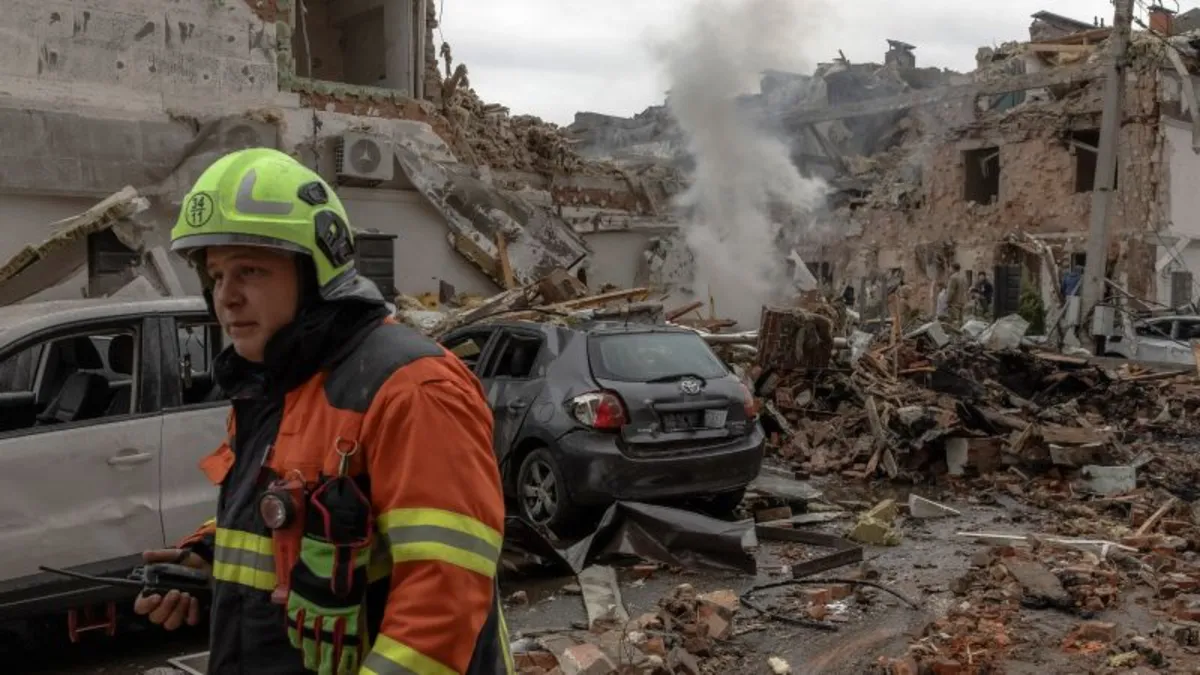
On Saturday, world leaders voiced significant apprehensions regarding a US peace plan for Ukraine that many perceive as favoring Russia. The leaders emphasized that the proposal requires “additional work” as they scramble to formulate a coordinated response. European nations were caught off-guard by the details of the plan, which include major concessions to Russia and were developed with minimal input from either Ukraine or European allies.
While acknowledging the efforts put forth by the US, European leaders specifically pointed out the “proposed limitations on Ukraine’s armed forces” included in the draft document as a significant area of concern. The statement from the leaders reiterated that any implementation of elements related to the European Union and NATO would require the consent of EU and NATO members respectively. The 28-point plan calls for Ukraine to cede territory to Russia, abandon its longstanding pursuit of NATO membership, and reduce the size of its military.
The initial draft of the 28-point plan contains crucial elements deemed essential for achieving a just and lasting peace. However, the statement also underscored that the draft is merely a foundation that necessitates further refinement. Ukrainian President Volodymyr Zelensky expressed that Ukraine faces a dilemma: choosing between losing its dignity or vital support from the US. Notably, former President Donald Trump has given Kyiv until Thursday to accept the proposal.
Ukraine's allies convened on the sidelines of the G20 summit to deliberate on the proposal, a summit that the US chose to boycott. The leaders had to navigate the challenge of opposing the proposals without alienating President Trump. German Chancellor Friedrich Merz, one of the signatories of the statement, told reporters that the war can “only be ended with the consent of Ukraine and also with our consent, the European consent, because it is a war on the European continent.”
Top officials from the US and Ukraine are scheduled to meet in Geneva, Switzerland on Sunday to discuss the next steps for ending the conflict. A US official indicated that the goal of the meeting is to finalize language before Zelensky's meeting with Trump. Notable figures such as Secretary of State Marco Rubio and Ambassador Steve Witkoff will participate in these crucial discussions. Additionally, a meeting between a Russian delegation and the US to discuss the proposed peace plan is also on the agenda, although it will not take place in Geneva.
Zelensky acknowledged the forthcoming discussions in Switzerland, revealing that he signed a decree regarding the composition of the Ukrainian delegation. “Our representatives know how to defend Ukraine’s national interests and what is needed to prevent Russia from carrying out a third invasion,” he affirmed. British, French, and German national security advisers are also set to meet with their Ukrainian and US counterparts in Geneva, according to diplomatic sources.
In light of the ongoing negotiations, a European diplomat informed CNN that any future agreement “cannot entail recognition of occupation,” emphasizing that the contact line should serve as a point of departure. Furthermore, the diplomat stressed that there should be no removal of the right to choose alliances, no caps on Ukraine’s armed forces, or any backdoor introduction of Russia’s demands regarding European security. The diplomat also noted that the clause concerning security guarantees in the US proposal requires further clarification.
Meanwhile, European Council President António Costa announced on Saturday that he has invited all 27 EU leaders to a “special meeting on Ukraine” scheduled for Monday. This meeting will take place on the margins of the EU-African Union summit. As this situation continues to evolve, updates will be provided.
This report includes contributions from CNN’s Chris Liakos, Thom Poole, Billy Stockwell, and Jennifer Hansler.